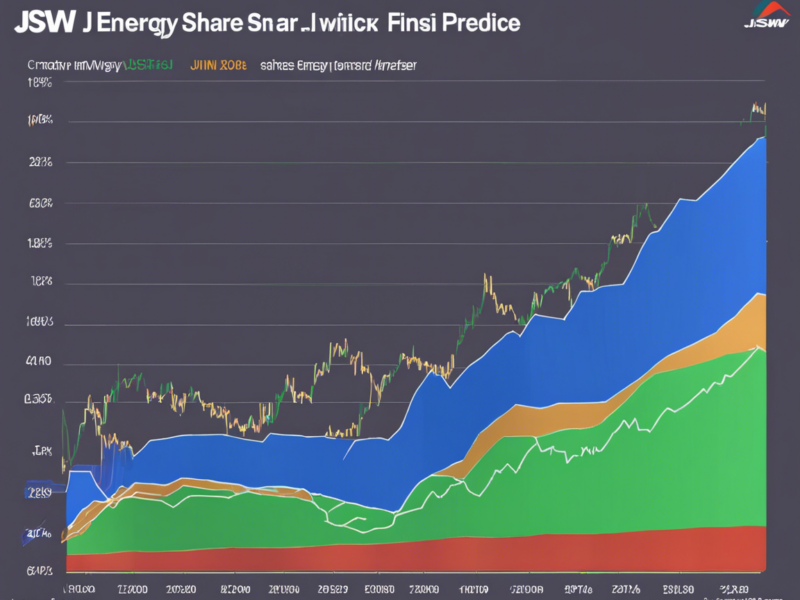Investing in the stock market can be a lucrative way to expand your wealth over time. However, it is essential to analyze various factors before deciding which stocks to invest in. One such factor to consider is the performance of a company’s share price over time. In this article, we will delve into the analysis of JSW Energy’s share price performance, a leading player in the Indian power sector.
Introduction to JSW Energy
JSW Energy is a part of the JSW Group, one of India’s leading business conglomerates with a strong presence in steel, energy, infrastructure, cement, and paints sectors. Established in 1994, JSW Energy has emerged as a key player in the power generation industry, with a focus on sustainability and renewable energy sources. The company operates thermal, hydro, and solar power plants across India, catering to the energy needs of various sectors.
Factors Influencing JSW Energy Share Price
Several factors can influence the share price of a company, and understanding these factors is crucial for making informed investment decisions. Some of the key factors that can impact JSW Energy’s share price include:
1. Market Trends
The overall market trends in the energy sector can significantly affect JSW Energy’s share price. Factors such as global energy prices, demand-supply dynamics, and regulatory policies can impact the company’s profitability and, in turn, its share price.
2. Financial Performance
The financial performance of JSW Energy, including its revenue growth, profit margins, and cash flow, can influence investor sentiment towards the stock. Strong financial results are usually associated with a higher share price.
3. Industry News and Developments
Any significant news or developments in the energy sector, such as regulatory changes, technological advancements, or industry trends, can impact JSW Energy’s share price. Investors closely monitor such news for clues about the company’s future prospects.
4. Management Efficiency
The management team plays a crucial role in determining a company’s success. Investors assess the efficiency and strategic decisions of JSW Energy’s management, which can influence the stock’s performance.
5. Macroeconomic Factors
External macroeconomic factors, such as interest rates, inflation, and GDP growth, can impact the broader stock market and, consequently, JSW Energy’s share price.
Analyzing JSW Energy Share Price Performance
To analyze the performance of JSW Energy’s share price, investors can consider various metrics and tools:
Historical Share Price Analysis
- Long-term Trend: Analyzing the long-term trend of JSW Energy’s share price can provide insights into its historical performance and potential future trajectory.
- Support and Resistance Levels: Identifying key support and resistance levels can help investors make informed decisions about buying or selling the stock.
- Moving Averages: Calculating and analyzing moving averages of JSW Energy’s share price can help identify trends and potential buy or sell signals.
Fundamental Analysis
- Earnings Per Share (EPS): Examining the company’s EPS can provide insights into its profitability and growth potential.
- Price-to-Earnings (P/E) Ratio: The P/E ratio helps investors assess JSW Energy’s valuation relative to its earnings.
- Debt-to-Equity Ratio: The debt-to-equity ratio indicates the company’s financial leverage and risk profile.
Technical Analysis
- Relative Strength Index (RSI): The RSI can help investors gauge the overbought or oversold conditions of JSW Energy’s stock.
- Moving Average Convergence Divergence (MACD): The MACD indicator is used to identify changes in the stock’s momentum.
Market Sentiment Analysis
- Analyst Recommendations: Monitoring analyst recommendations and price targets can offer insights into market sentiment towards JSW Energy’s stock.
- Investor Sentiment: Tracking investor sentiment through social media, online forums, and news articles can help gauge market expectations and potential price movements.
Frequently Asked Questions (FAQs)
1. Is JSW Energy a good investment?
JSW Energy can be a good investment choice for investors looking to diversify their portfolio with exposure to the energy sector. However, it is essential to conduct thorough research and analysis before making any investment decisions.
2. How has JSW Energy’s share price performed in the past year?
The past performance of JSW Energy’s share price can vary based on market conditions, company performance, and external factors. Investors should analyze historical data and trends to make informed decisions.
3. What are the key growth drivers for JSW Energy?
Key growth drivers for JSW Energy include expansion of its power generation capacity, focus on renewable energy sources, efficiency improvements, and strategic partnerships in the energy sector.
4. How does regulatory environment impact JSW Energy’s share price?
Changes in the regulatory environment, such as government policies on renewable energy, tariff regulations, and environmental norms, can impact JSW Energy’s operations and financial performance, thereby influencing its share price.
5. What are the risks associated with investing in JSW Energy?
Risks associated with investing in JSW Energy include regulatory risks, competition in the energy sector, volatility in energy prices, and macroeconomic factors affecting the industry.
In conclusion, analyzing the performance of JSW Energy’s share price requires a holistic approach, considering both fundamental and technical aspects, as well as market trends and sentiment. By conducting thorough research and staying informed about the company and the industry, investors can make informed decisions about investing in JSW Energy.

